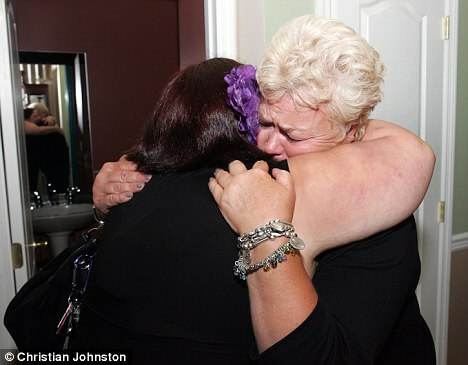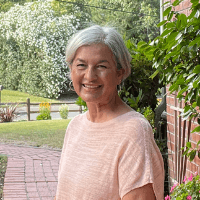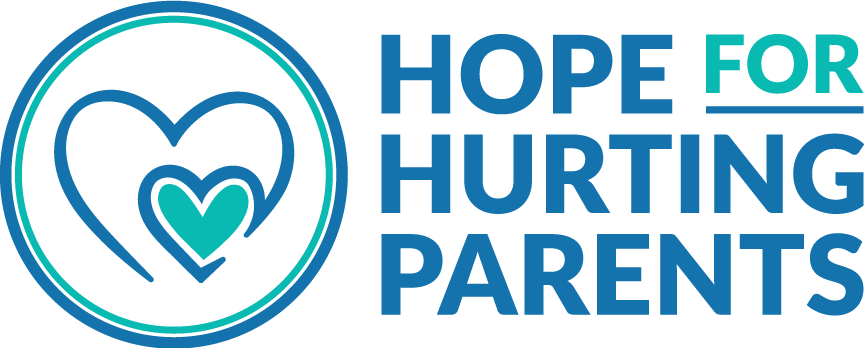
photo cred. David Mao on unsplash
Welcome guest blogger, certified parent and life coach Cathy Taughinbaugh. Cathy provides support for families who struggle with substance use. In this blog post she writes about how natural consequences can help bring about change.
“Letting consequences happen can help with change.”
Many think of letting consequences happen as tough love.
But there is a difference.
Tough love can be cold, insensitive, and not in your child’s best interest. It is emotionally charged and usually comes from a place of anger. You may be turning your back on your child with the idea that you can let go of their problems as well.
I’ve had a time in my life where I thought tough love was the answer. My child was on the verge of being homeless because of their substance use.
Because I was so frustrated, at one point, I thought that turning my back was the answer. I knew in my heart, however, that I could never let go of my child.
Not only could I not let go, but my stress level skyrocketed. I wrestled with not being able to sleep and being obsessed with worry. Tough love didn’t work very well for me.
Natural consequences
Another choice is to step back and let the consequences happen. I know this sounds very much the same, but it is different. And here’s why.
Allowing for consequences comes from a place of compassion and love. Planned for ahead of time, it’s not driven by emotions or confrontational. It’s not a punishment.Get out of the way and let the world teach your child. Those teaching moments can increase their desire to do something different and decrease their undesirable behavior.
The lesson is: with actions, there are consequences. When you allow your child to experience those consequences, they learn a powerful lesson about life.
While your words help, their life experience can have a profound impact. A few life lessons where the negative outweighs the positive could be the beginning of change.
Life lessons
Some examples of life lessons could be:
- Your child misses school because they’ve failed to get up in the morning on time.
- Dinner is not waiting when your child fails to show up on time. Have food available, but let them make their own dinner.
- Your child misses work because he oversleeps due to his drug or alcohol use. You don’t intervene.
There are two essential ingredients to letting consequences happen.
One is to let your emotions be on the back burner and stay calm. Plan and think through your decisions in a rational way. Let your child accept responsibility for their actions.
The second is to be fair. Let your son or daughter know ahead of time that you will not step in if there are negative consequences because of their substance use. You might even write it down in a contract that you all sign so everyone is clear. The key here is that you follow through.
Allowing natural consequences can be difficult at times. You may feel scared about the future. You may want to cover for your child because you don’t want others to know what is happening. Start small with things that you are comfortable with and go from there.
It’s hard to see your son or daughter suffer. Yet when you continue to protect your child from their actions, they learn that there is no downside to their behavior.
There is no reason for them to stop their harmful actions.
Enabling behaviors
Enabling is what might come into play here. When we enable, we are doing things for our child that allow the negative behavior to continue.
You can be supportive and kind to your child and encourage their good behavior. Yet, you do not need to support or cover up for their poor choices.

photo cred. Newspring church
In the CRAFT approach, natural consequences go hand in hand with positive reinforcement.
Here are three questions based on The 20 Minute Guide that you can ask yourself when considering letting natural consequences happen.
- What are the consequences of my child’s substance use?
- What am I doing to cushion my child from experiencing these consequences?
- What can I do to allow my child to feel the consequences of their behavior while being protective of any life-threatening situations?
The close calls with my child ended on a positive note. Better choices were made when they realized what they were facing.
It helped me to take time to work through my frustration. I’m grateful I turned towards my child instead of away from him.
I’m better suited for the strategy of letting consequences happen rather than the harsh tough-love approach. It feels more peaceful to me as it comes from a place of love.
Remember, when you protect your child from themselves, they don’t have any reason to change.
Let the world provide teaching moments that can make a difference.
In my video about Natural Consequences I discuss how to gently step out of the way.
 Meet Cathy Taughinbaugh: As a result of her journey with her own child’s drug use, Cathy, a former educator became a Certified Parent Coach to help other parents struggling because of their child’s substance use. Cathy was an elementary school teacher for fifteen years. She is an Associate Certified Coach, through the International Coach Federation and has a Certificate of Completion from Robert J. Meyers, Ph.D.& Associates, Community Reinforcement and Family Training (CRAFT). Cathy is one of over 350 Community Reinforcement and Family Training (CRAFT) Parent Network Coaches trained by the Center for Motivation and Change and the Partnership to End Addiction. You can learn more at her website, www.cathytaughinbaugh.com.
Meet Cathy Taughinbaugh: As a result of her journey with her own child’s drug use, Cathy, a former educator became a Certified Parent Coach to help other parents struggling because of their child’s substance use. Cathy was an elementary school teacher for fifteen years. She is an Associate Certified Coach, through the International Coach Federation and has a Certificate of Completion from Robert J. Meyers, Ph.D.& Associates, Community Reinforcement and Family Training (CRAFT). Cathy is one of over 350 Community Reinforcement and Family Training (CRAFT) Parent Network Coaches trained by the Center for Motivation and Change and the Partnership to End Addiction. You can learn more at her website, www.cathytaughinbaugh.com.

0 Comments